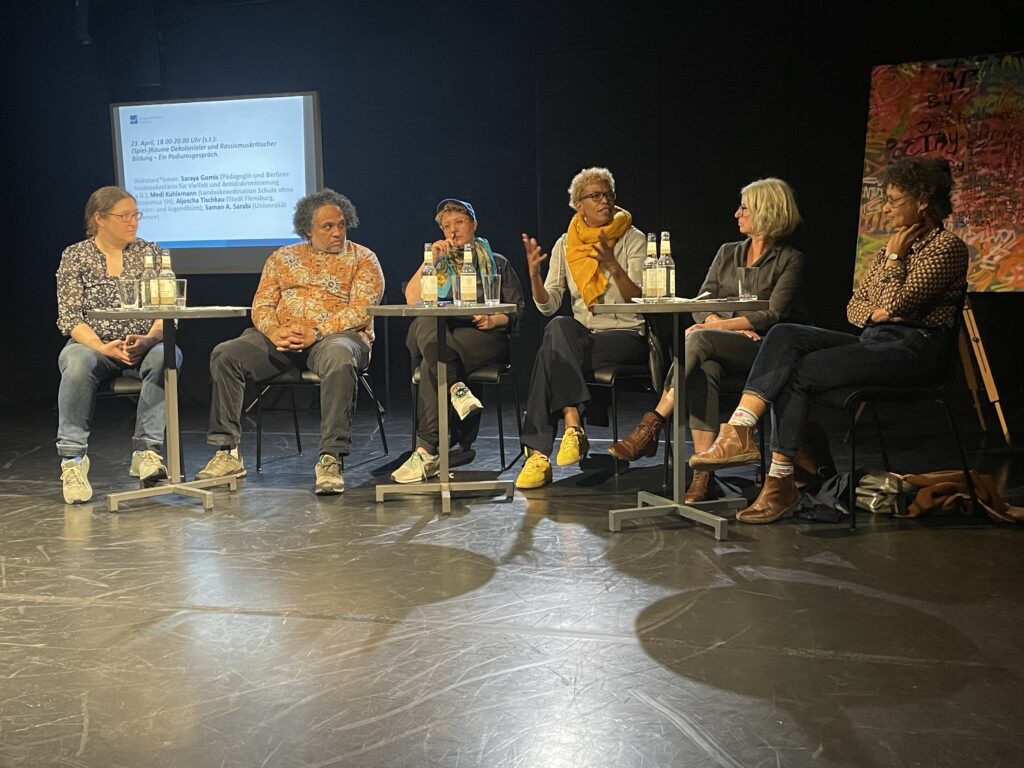Review: Flensburg Campus Talks: Spaces of Decolonial Education (2024/2025)
The Campus Talks on Spaces of Decolonial Education took place at the Europa-Universität Flensburg in the autumn and spring semesters of 2024/25. A total of six events were held to discuss anti-racist and decolonial education, organised by the Institute of Education in collaboration with the Department of Integrative Geography, the Department of German in the Context of Multilingualism, and the Seminar for History and History Didactics.

Professor Alisha M. B. Heinemann, from the University of Bremen, opened the event with a fundamental reflection on educational spaces from a decolonial and power-critical perspective, as well as the role of science and scientists within these spaces. In the second discussion, Dr Kim Todzi from the Hamburg Research Centre for (Post-)Colonial Heritage illustrated that spaces of decolonial and anti-racist education and reseach are also central to a city’s engagement with its colonial heritage, using the example of Hamburg. Decolonial perspectives are important not only in urban history. Postcolonial perspectives are also crucial in the natural sciences, raising ethical and power-sensitive questions about which knowledge is valued, the role of researchers, and the social contexts that are overlooked. Prof. Dr. Lilith Rüschenpöhler from the Norwegian University of Science and Technology in Trondheim addressed this issue. Concrete examples were then discussed in a subsequent workshop.
In the spring semester of 2025, Noa K. Ha from the German Centre for Integration and Migration Research (DeZIM) in Berlin launched a discussion series. Using Berlin as an example, she asked how European cities, despite their colonial foundations, can also become spaces offering opportunities for a diverse future. The second discussion, also held in spring, examined questions of plurality and criticism of racism from various practical viewpoints. Moderated by Denise Bergold-Caldwell and Inken Carstensen-Egwuom from the European University of Flensburg, the discussion featured contributions from Saraya Gomis (educator and former Berlin State Secretary for Diversity and Anti-Discrimination), Medi Kuhlemann (State Coordinator for Schools Without Racism SH), Aljoscha Tischkau (City of Flensburg, Children and Youth Office) and Saman A. Sarabi (University of Bremen). The panelists explored the presence of colonial legacies within educational institutions, as well as the potential for decolonial education within these settings. They reported on specific forms of practice in their various fields, emphasising that solidarity and mutual encouragement are central to the current situation. The series concluded with İnci Dirim from the University of Vienna, who discussed discrimination based on language and the effect of language as a category of difference in educational institutions, among other places.
